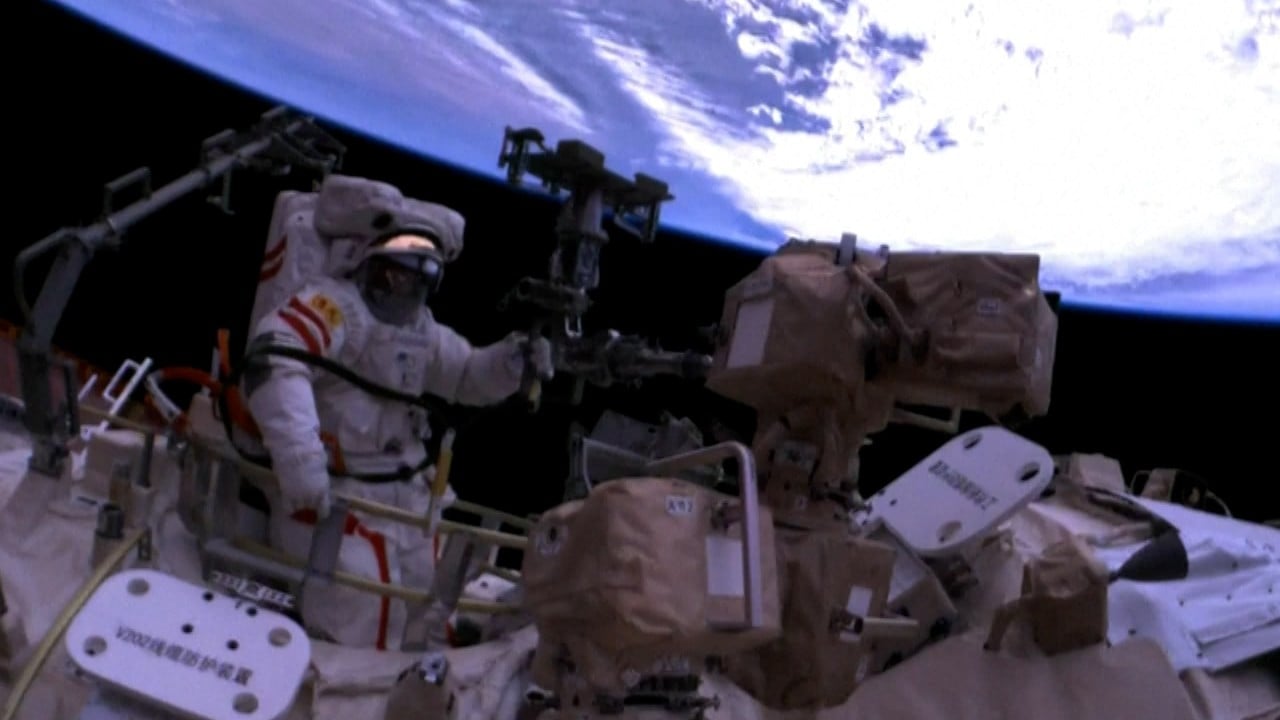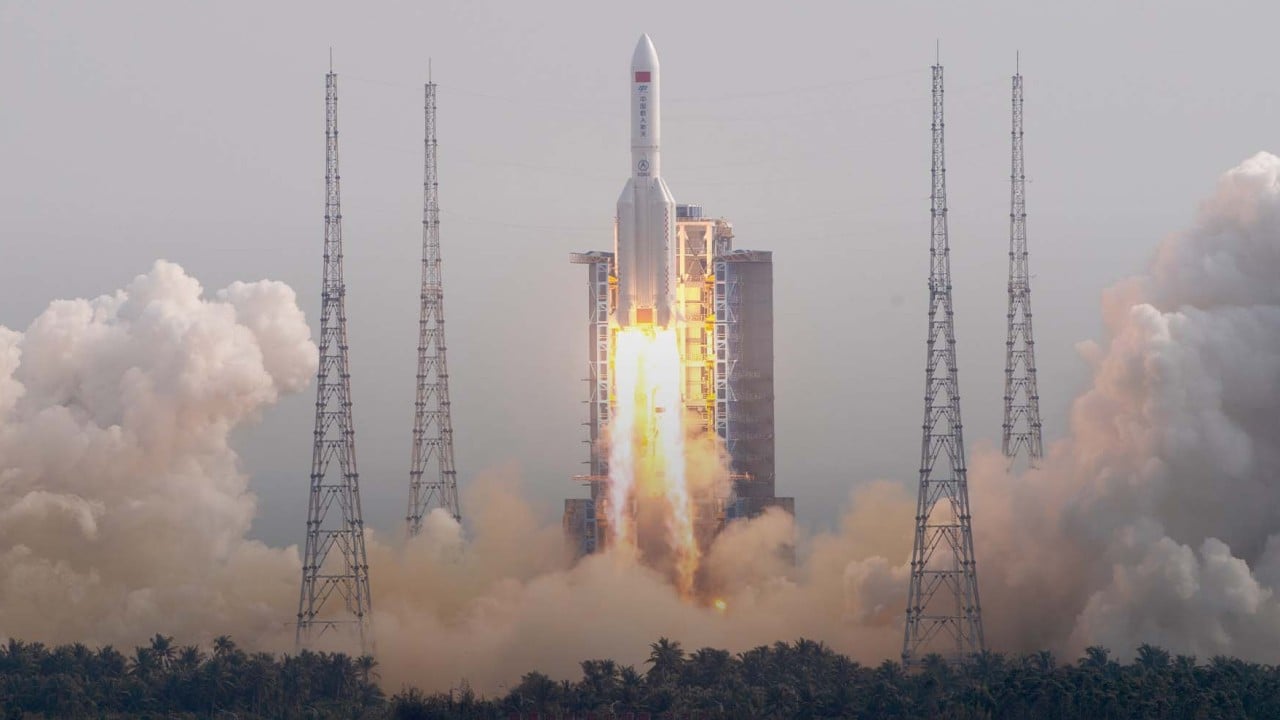
The Wandering Earth II: blockbuster prequel shows how China’s tech progress has bolstered its sci-fi credentials
- The movie raked in more than 3.5 billion yuan at the box office in just 20 days
- Director says success of series is closely linked to China’s technological advances
Four years later, The Wandering Earth II, a prequel featuring Hong Kong actor Andy Lau Tak-wah, has been received with similar enthusiasm, raking in more than 3.5 billion yuan in the 20 days after its release.
Its director, Frant Gwo, said its appeal had been bolstered by advances in domestic technology that dovetailed with the national narrative of a stronger and more technologically advanced China.
Chinese audiences said they were proud to see not only an improvement in overall cinematic quality, with spectacular special effects, but also a wide-ranging display of cutting-edge home-grown technologies with real-life applications.
A superintelligent quantum computer called Moss is tasked with preserving humanity at all cost. In real life, China has become the third country, after the United States and Canada, to be capable of delivering a complete computer system using game changing quantum technology.
Gwo wrote in the party mouthpiece People’s Daily that the success of The Wandering Earth series was closely linked to China’s technological advances.
The Wandering Earth II: Wu Jing, Andy Lau lead sci-fi blockbuster prequel
“The advances made by our nation have provided a strong foundation for the rise of the sci-fi genre in China,” he said. “Only a strong country can support a strong sci-fi industry.”
In roadshows promoting the film, Gwo repeatedly said footage of Chinese astronauts taking a spacewalk was convincing on the big screen because the audience knew three astronauts were orbiting Earth in the Tiangong space station.
In 2014, Gwo and four other young directors were sent to the US on a trip sponsored by the Chinese government to close the gap between Hollywood and the Chinese film industry.

Two years later, Gwo was chosen to direct China’s first big-budget science fiction film The Wandering Earth, adapted from a short novel by the Hugo Award-winning sci-fi author Liu Cixin, renowned for his bestselling novel The Three Body Problem.
Liu said in a recent interview that the film was only made possible by China’s rise on various fronts.
“It would not be possible for the novel to be adapted into films 30 years ago,” he said. “Nobody would be willing to invest in such a film because they would ask how it was possible that Chinese could save the world and have the technology to blow up the moon.
“But China’s rapid development has made the plot sound less unrealistic. The Chinese people have been motivated to imagine the future.”
‘The Wandering Earth’, feted in mainland China, is unloved in Hong Kong
When the novel was published in 2000, China was still four years away from the beginning of its lunar exploration programme and only 10 per cent of its population owned a mobile phone.
When the 2019 film was released, China had just successfully landed the Chang’e 4 spacecraft on the far side of the moon in what was described as a milestone in China’s lunar exploration.
“The confidence of China’s science fiction comes from the strength of its great power, which is the inevitable result of continued efforts to improve its national strategic science and technology forces,” Liu Pingping, a researcher with the Beijing Academy of Science and Technology, wrote in an article posted on a government website, adding that China had increased funding for key technologies in the past decade and spending on research topped 3 trillion yuan last year.
The latest film has also been hailed for making a compelling case for solidarity and collective efforts, setting it apart from many Hollywood blockbusters’ overreliance on superheroes.
The series follows a rescue mission to save humanity by moving the Earth away from a degenerating sun that threatens to destroy it. In the face of imminent catastrophe, a United Earth Government, following proposals by China, commits to a 2,500-year plan for the Earth to leave the solar system and find a new home in space.
“The Wandering Earth II is an ode to collectivism that is very different from the individualistic heroism often displayed in Hollywood blockbusters,” Beijing-based film critic Yun Feiyang said.
“The film shows that the Chinese people have a very different mentality in handling crisis: we believe in working together towards a common goal and we have strong attachment towards our homeland, which is different from the logic of rescuing a select group of people” shown in many Hollywood films.



